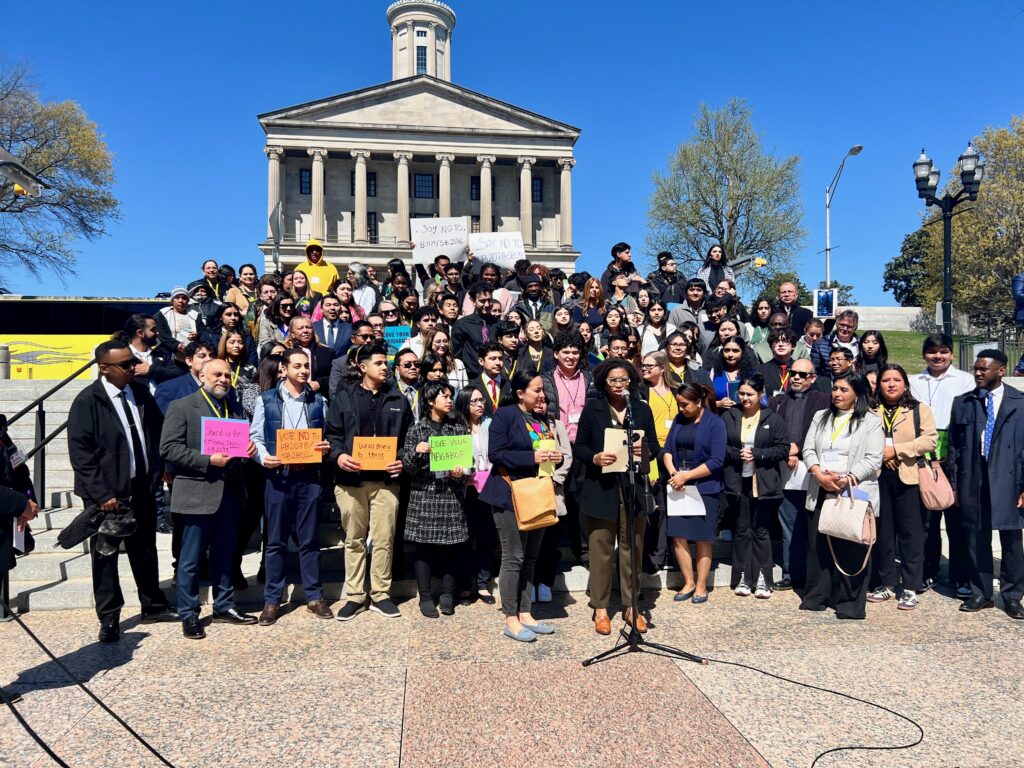
Legislation filed in Tennessee’s statehouse would increase the penalty for people that give a ride to an undocumented immigrant.
The Tennessee Immigrant & Refugee Rights Coalition says the bill would harm minorities and increase the amount of discrimination faced by some communities.
Joanna Maldonado, a child of immigrants who was raised in Nashville, spoke at a news conference held by the group. She says SB 2802 would harm parents.
“That’ll just essentially make all parents be fearful of taking their kids to school,” said Maldonado. “What happens when they get sick? They’ll be scared to take their kids to the hospital.”
During debate in the Senate Judiciary Committee on Tuesday, Sen. London Lamar, D-Memphis, asked about the bill’s language possibly opening up what she saw as a problem.
“Would this bill unintentionally loop in good Samaritans?” asked Lamar. “There could be two individuals who may be at a supermarket looking for a ride and this person gives them a ride not knowing what their status is. And if they get pulled over and a police officer realizes that the people that they’re giving a ride to are undocumented, would they then be liable under this bill?”
The legal staff on the committee answered yes.
Lamar pointed out that under the language even drivers for ride-hailing companies would be liable.
“Uber drivers are simply just trying to do their job as if they were a cab driver, or any other in the transportation business,” said Lamar. “And I feel like you put their jobs at risk because they don’t necessarily do a deep dive into who the people they’re transporting are.”
Sen. Kerry Roberts, R-Springfield, says he also doesn’t support the bill’s current language.
“If both those things are fixed, I wouldn’t have a problem with the bill. But I can’t vote for it the way it is because I don’t think it’s the job of a bus driver to check somebody’s status when they get on the bus,” said Roberts.
Sponsor Sen. Joey Hensley, R-Rosenwald, says that’s not how he understood the bill, but he agreed to move it to next week’s schedule and file an amendment to update the language.
That leaves the bill one step away from a full Senate vote. The House version of the bill is on the calendar for next week after discussion was postponed Tuesday due to a late-filed amendment.

